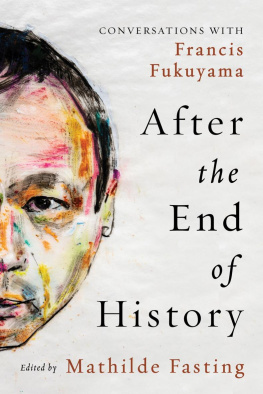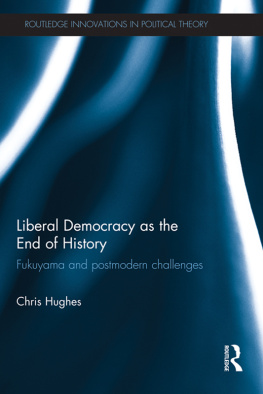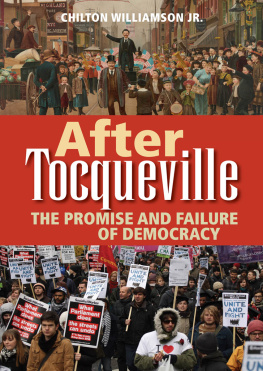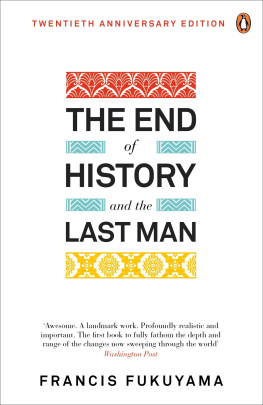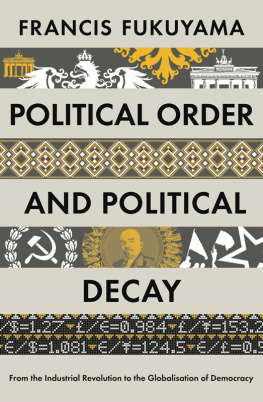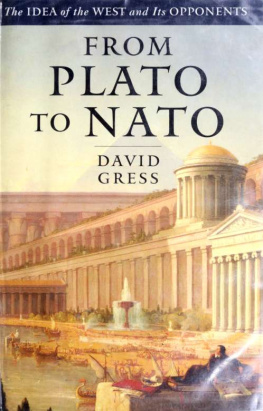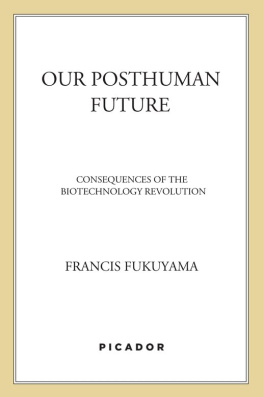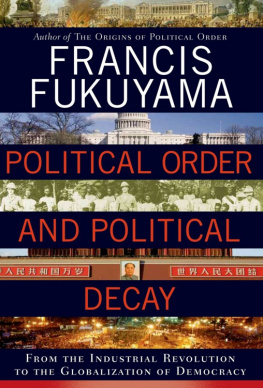The Responsibility to Prevent: Overcoming the Challenges of Atrocity Prevention (co-editor)
THE RETURN
OF HISTORY
Conflict, Migration, and Geopolitics in the Twenty-First Century
JENNIFER WELSH

Copyright 2016 Jennifer Welsh
and Canadian Broadcasting Corporation
Published in Canada and the USA in 2016 by House of Anansi Press Inc.
All rights reserved. No part of this publication may be reproduced or transmitted in any form or by any means, electronic or mechanical, including photocopying, recording, or any information storage and retrieval system, without permission in writing from the publisher.
Distribution of this electronic edition via the Internet or any other means without the permission of the publisher is illegal. Please do not participate in electronic piracy of copyrighted material; purchase only authorized electronic editions. We appreciate your support of the authors rights.
House of Anansi Press
www.houseofanansi.com
Library and Archives Canada Cataloguing in Publication
Welsh, Jennifer M. (Jennifer Mary), 1965, author
The return of history / Jennifer Welsh.
(The Massey lectures)
Issued in print and electronic formats.
ISBN 978-1-4870-0130-8 (hardback).ISBN 978-1-4870-0132-2 (mobi)
1. HistoryPhilosophy. 2. World politics1989.
3. Civilization. 4. Regression (Civilization). 5. Progress.
I. Title. II. Series: CBC Massey lectures series
D16.8.W45 2016 901 C2016-901577-7
Library of Congress Control Number: 2016932422
Cover design: Alysia Shewchuk
Cover images: Shutterstock
Every reasonable effort has been made to trace ownership of copyright materials. The publisher will gladly rectify any inadvertant errors or omissions in credits in future editions.

We acknowledge for their financial support of our publishing program the Canada Council for the Arts, the Ontario Arts Council, and the Government of Canada through the Canada Book Fund.
For Eleanor and Max,
and the history they will make .
Contents
Chapter 1: The Return of History
Chapter 2: The Return of Barbarism
Chapter 3: The Return of Mass Flight
Chapter 4: The Return of Cold War
Chapter 5: The Return of Inequality
Notes
Acknowledgements
Index
History repeats itself because no one was
listening the first time. Anonymous
ONE
THE RETURN OF HISTORY
IT IS THE CONCEIT of almost every generation to think that it is living in extraordinary times. For my parents generation, it was the trauma of the Second World War and the miracle of post-war reconstruction. For my older siblings, it was the protest movements of the late 1960s and the triumph of civil rights and womens equality. And for my generation, it was the end of the Cold War.
In the autumn of 1989, it was difficult not to believe that something monumental was occurring on the global landscape. The stirrings in Eastern Europe were not isolated accidents, but seemed part of a larger process whose trajectory was still uncertain. I was a graduate student at the University of Oxford, and when the images And so it was. It was estimated that close to two million East Germans crossed over into West Berlin the weekend after the Wall fell most of them to spend the welcome gift of 100 Deutschmarks they received from the West German government. I came home with my own piece of the Wall, painted with graffiti, as well as a euphoric sense of being at the centre of history.
The collapse of communist regimes was so rapid that scholars and journalists scrambled to keep up. The revolutions that had begun in Poland and Hungary, and spread to Germany, sparked upheaval in Czechoslovakia, Romania, and Bulgaria. The wave eventually spilled over into the Soviet Union itself, where suppressed nationalism in the Baltic region Estonia, Latvia, and Lithuania and in republics such as Armenia and Georgia, exploded into calls for independence. The deteriorating Soviet economy only heightened these nationalist sentiments and led successive constituent republics of the Soviet Union to create their own economic and legal systems. Though the genie was already out of the bottle, communist hard-liners in the Kremlin tried to reverse the changes by staging a coup against President Mikhail Gorbachev in the summer of 1991. The effort was thwarted by the president of the Russian republic, Boris Yeltsin with the help of the army but the communist regime in Moscow was mortally wounded. Any remaining authority it had quickly evaporated. The Soviet Union was officially disbanded on December 26, 1991, ending its reign as the worlds largest and most influential communist state.
In the midst of these tumultuous events, the American political commentator Francis Fukuyama wrote a famous article entitled The End of History. His central claim was that the demise of the confrontation between East and West in 1989 As a consequence of liberal democracys victory, and diffusion, he predicted, we would see the waning of traditional power politics and large-scale conflict, and the path toward a more peaceful world.
A decade later, the end of the Cold War and the subsequent increase in the number of liberal democratic states was indeed accompanied by a marked decline in both interstate and ethnic wars, as well as the number of refugees and displaced persons. During the 1990s, the former superpowers collaborated on the reunification of Germany and disengaged from their proxy wars in Africa. The United States also scaled back its military presence in Europe and led the charge to expand the North Atlantic Treaty Organization (NATO) to include states that were formerly part of the Soviet bloc. Societies in Central and Eastern Europe and the Baltic region embraced democracy and were drawn into the orbit of the expanding European Union (EU) which had begun as a free trade and customs area, but after the ratification of the Maastricht Treaty in 1993 created a common currency and strengthened political cooperation in areas such as foreign policy, justice, and immigration.


